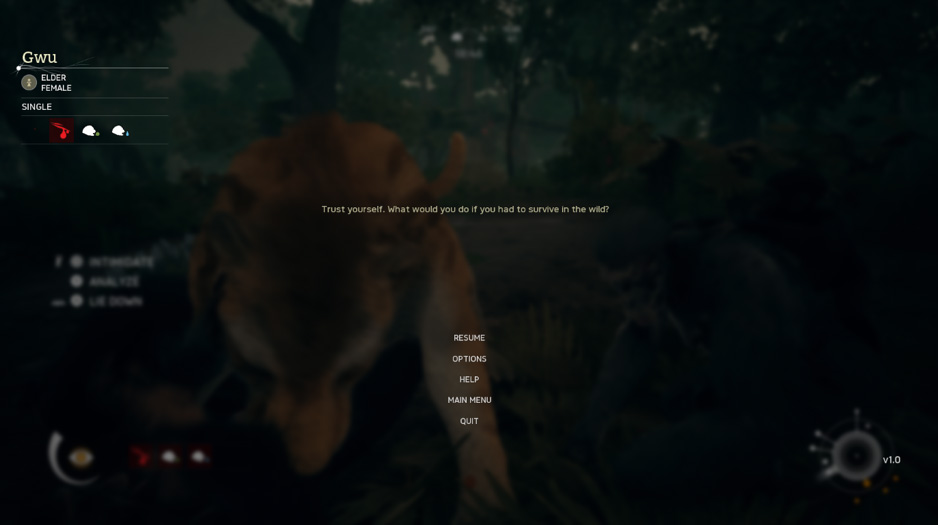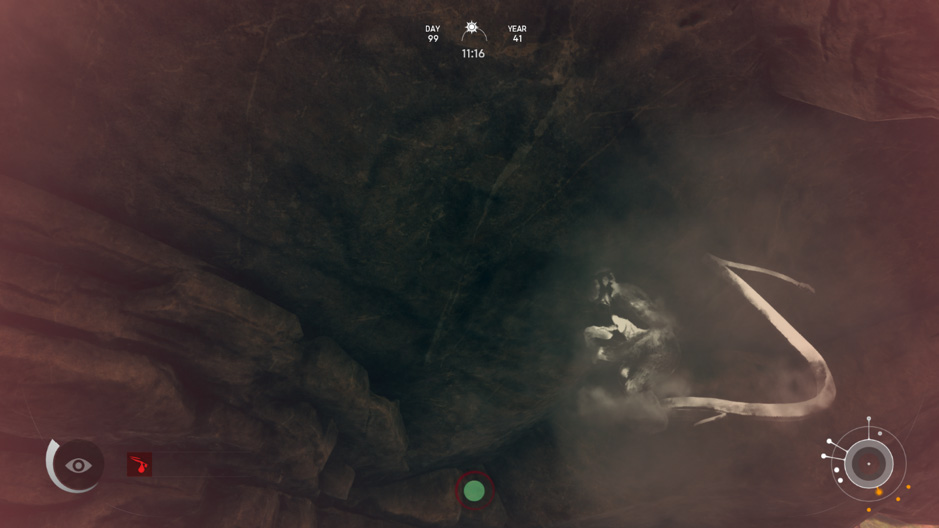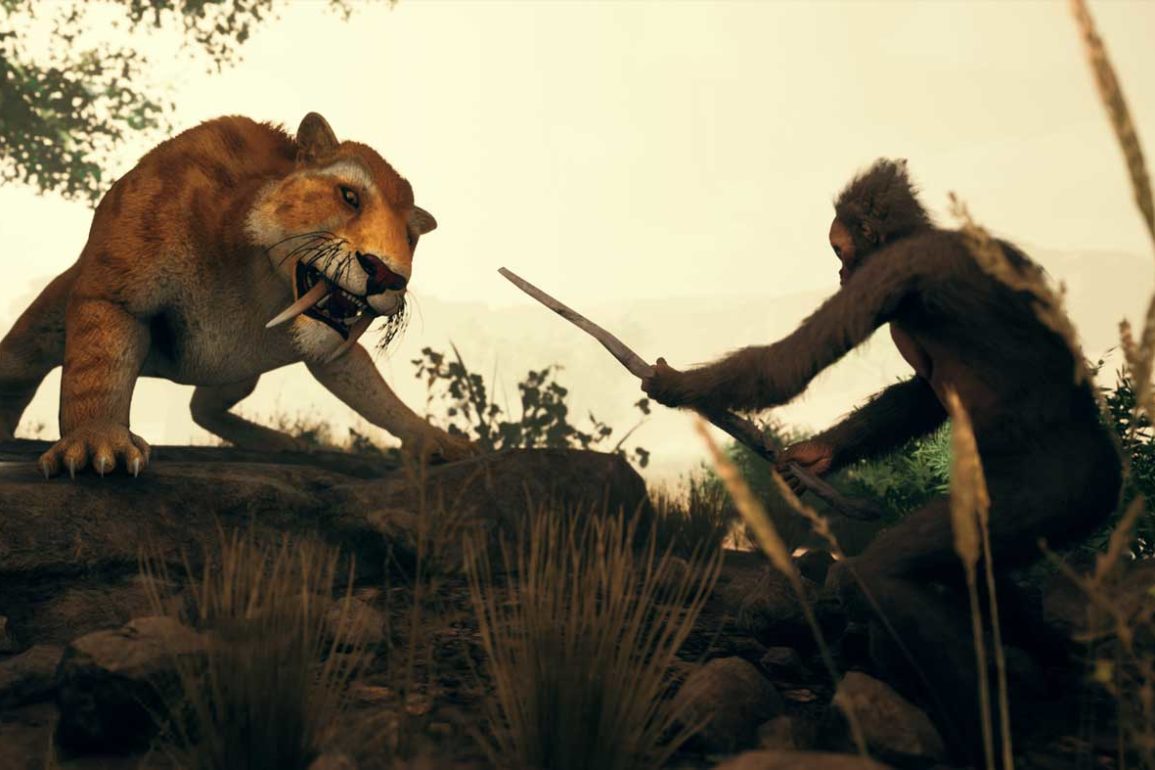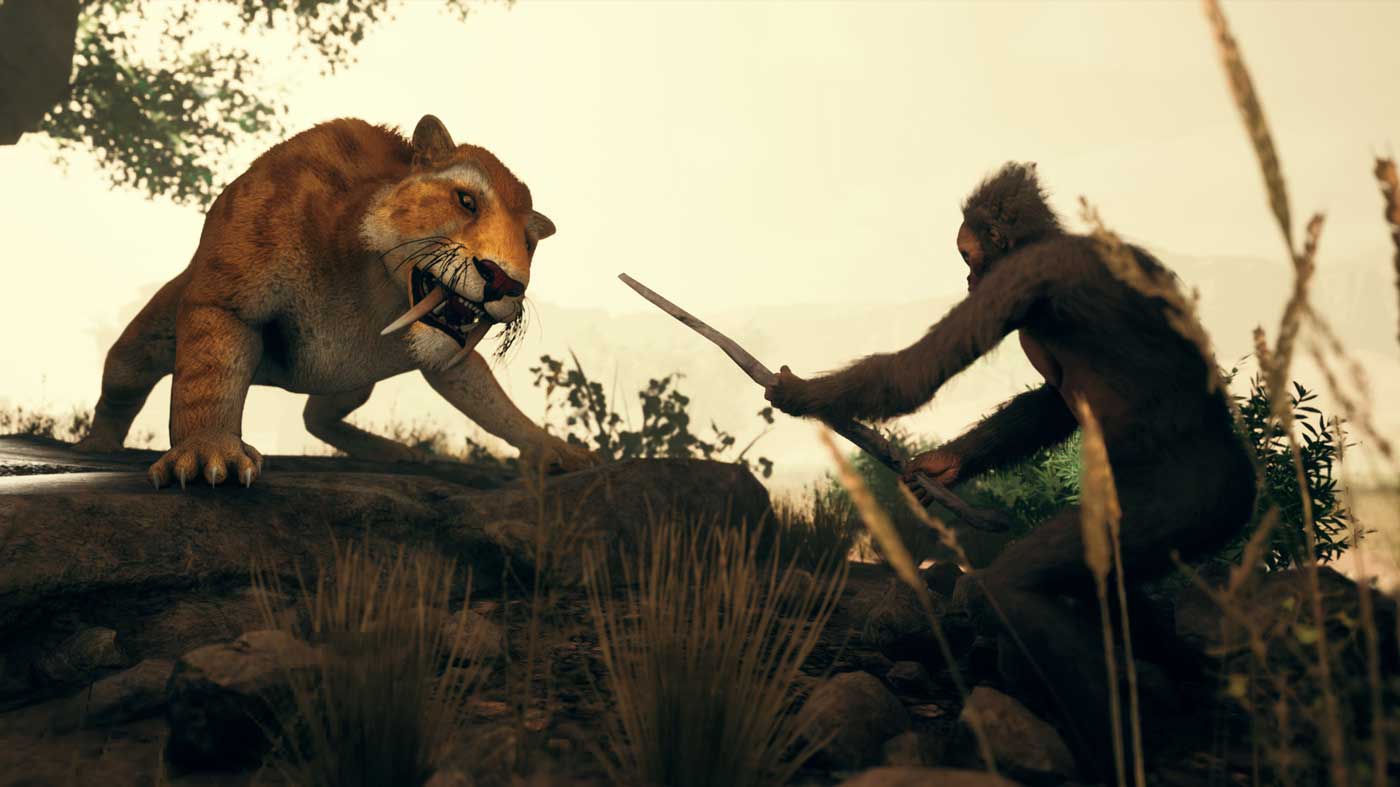The general concept behind Ancestors: The Humankind Odyssey is a good one. The evolution of man from the earliest apes through to proto-humans and beyond is turned into a survival game, informed by data gleaned from scientific discovery and research. I’m not usually a fan of survival games in general, but, done right, it could be a unique and fulfilling, perhaps even educational experience to play. Unfortunately, Ancestors is none of those things. Instead, the game is too caught up in its smugness, forcing the players into an experience I’m sure it thinks is clever and thematic but comes across more as distracted, under-developed, and all-around frustrating.
Ancestors is a confusing game by design, and there’s a certain logic to that. It’s meant to be representative of humanity’s evolutionary journey. “Representative” is the keyword here, however, and it takes that concept a little too far. One of the first few lines of the opening cinematic writes, “We won’t help you very much,” and that is not a lie. You’ll be dropped into the thick of things right from the beginning, but the gameplay is far from intuitive, and the different systems absolutely need some explaining. It’s meant to mirror early humans’ struggles with a lack of direction about how to survive. While that’s a novel idea, the deliberate vagueness is a massive source of frustration. Not giving you direct objectives would be one thing but the cryptic drivel that passes for tutorials and hints on simple things, like how to get around and use basic mechanics, is completely maddening. It would be less confusing to have Yoda sitting on your shoulder the entire time whispering incorrect Confucian sayings.

Think of the most annoying tropes that survival games are known for, and Ancestors either has them or has found new annoying twists to add onto old “classics.” The game picks and chooses in a curiously selective way what you have to act out, and what gets glossed over to save time. Mating is brief and full of awkward hooting. Impregnation and gestation happen simultaneously and instantly, with birth occurring immediately after (if you so choose.) Your little ape children seem to remain indefinitely as infants, however, until you decide to progress the timeline onto the next generation. Or, more accurately, when you figure out that you need to trigger that transition yourself by stuffing around in the evolution menu for awhile. You learn by repeatedly performing the same tasks, or viewing new territory, accruing experience to unlock new genetic traits. It’s only when you try to access those traits, however, that the game drops the hint that you need to be carrying children around to generate those much-needed experience points. The points themselves, of course, are shown as an amorphous ball of light without numerical value, and no way of knowing if it’s enough to unlock things until you just can.
There’s a lot of showing without telling going on, with the player expected to figure everything out, in ways that aren’t entirely consistent with one another. That’s not unusual for games in the survival genre, but there is so much information you’re meant to understand from a handful of extremely unhelpful visual cues. Your stamina, health, and what I assume is a general capacity to perform tasks are all on just the one meter, represented in three concentric, coloured circles. These will shrink and disappear at varying rates according to what the game decides they should, not how you’d expect from your time playing the game. You try to refill them by resting or eating, drinking water and so on, but those aren’t guarantees of fixing the problem and will sometimes even harm you.
You can inspect things to gain familiarity with them and enhance your understanding of the world; however, you’re generally trained to do this once and no more. That is, of course, except for those occasional moments where you’re supposed to inspect something you already have before. Expectations like this lead to things such as eating familiar fruit from the same bush that’s perfectly safe one moment and then inexplicably poisons you the next. Moments like this happen again, and again, and none of it is fun — not a single moment. Trial and error is an excellent way of teaching your players how to play your game so long as the process of it, and the intervening gameplay, are enjoyable. Otherwise, it’s just forcing your players through irritating busywork so that they can come to understand just how clever you think your design is.

These problems are further bogged down by a slew of technical issues. The engine allows for multiple items to overlap one another, but there’s no way to cycle your focus, so you need to shuffle your chosen ape around on the spot for a while until you happen to be looking at just the right angle for what you want. The controls in Ancestors are also unwieldy, and not just because unlocking simple motor functions is a part of the intended design. From agile, tree-leaping creatures to the later proto-humans as you evolve, every single one of them feels like they’re moving through invisible molasses. It’s made all the worse by unresponsive controls that barely make sense in the first place. You can pass through trees you’re meant to be able to swing through but, because the game didn’t notice you were holding that button, you’ll instead plummet to your death. If our ancient forebears actually functioned as poorly as this game controls, our race would be long dead. In fact, at one point, I had something of an evolutionary paradox lead to the death of humanity’s future when a wild tiger attack caused my game to crash:
After I rebooted my save, I discovered that every ape I had with me at the time was murdered by the aforementioned tiger, with only the infertile elderly apes at my settlement left over. The Crash Tiger, as it came to be known in the final, dark moments of my tribe, then shortly showed up afterward to finish off the rest of us.
It’s barely worth mentioning at this stage, but Ancestors also does a poor job of visual communication throughout. While your HUD, such as it is, does a poor job of showing enough usable information, there are moments when the screen fills with unnecessarily distracting guff. When your ape-person senses danger, silhouettes and visions of gnashing teeth and glowing eyes will cover your screen, as though the UI artist recently played Senua’s Sacrifice and decided the visual style of the hallucinations would go well with monkeys and little context. The same goes for when you’re cold, poisoned, terrified, or anything outside of “normal,” flooding the screen with so much visual noise that it can be difficult, if not impossible to discern what’s actually going on. Again, like everything else in considering all this in the context of Ancestors’ base concept, it makes a sort of sense. However, just like everything else in the game, it feels as though very little thought was given to the experience in which it all culminates.





